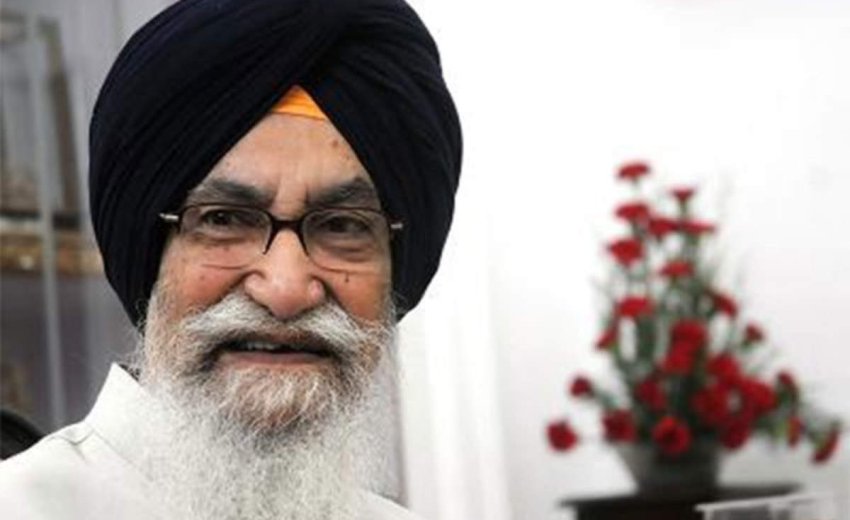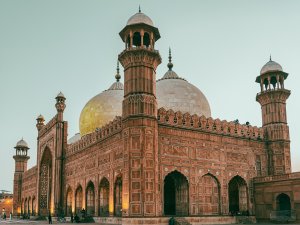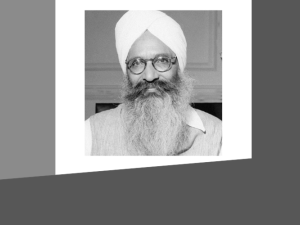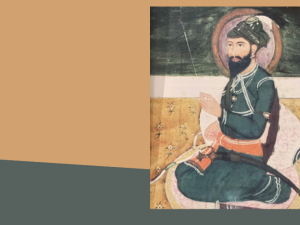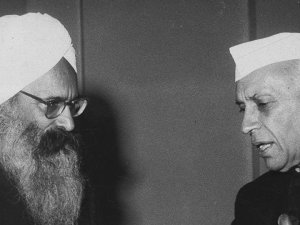S. Surjit Singh Barnala is the only Sikh in India who had the honour to be a Minister in the State Government, the Chief Minister of Punjab, a Central Govt. Minister and the Governor of many states. He was born on 21st October 1925. His father was a Magistrate in Patiala State and S. Barnala obtained a degree in Law from the Lucknow University and practiced as a lawyer for some years. S. Gian Singh Rarewala, Chief Minister PEPSU, prompted him to join politics. S. Barnala entered politics in PEPSU at the age of 29 when he fought the assembly election in 1954 on the Akali ticket. After the merger of PEPSU in Punjab in 1956 Barnala took active part in the Punjabi Suba movement and became very close to the Akali leaders. He aligned himself with Jathedar Gurcharan Singh Tohra who also hailed from PEPSU. He got his first Ministerial assignment as Education Minister in Justice Gurnam Singh government in 1969. This was the year when Guru Nanak Dev University was established at Amritsar to mark the 500th birth anniversary of Guru Nanak Dev Ji.
When a state of Emergency was proclaimed in India in 1975, the Akali party started a movement to oppose the Central Govt. move and the entire leadership courted arrest. Sant Harcharan Singh Longowal took over as President of the Akali Dal and S. Surjit Singh Barnala and S. Balwant Singh became his close advisors. A huge procession was organised from Anandpur Sahib to Delhi in 1975 to mark the 300th martyrdom of Guru Tegh Bahadur. S. Barnala was the main organizer. At that time, Giani Zail Singh was the Chief Minister of Punjab and he also accompanied the yatra. Indian Prime Minister, Mrs. Indira Gandhi participated in the huge congregation in Ram Lila grounds in Delhi where several Congress and Akali Leaders were present on the dais. Giani Gurmukh Singh Musafir organised many meetings of S. Barnala and S. Balwant Singh with the Congress high command in order to end the Akali agitation but with no results. When Mrs. Indira Gandhi lifted the Emergency, she announced general elections in 1977. Because of their continuous 19th month morcha, the Akali Party swept the elections; and all Akali leaders, including S. Parkash Singh Badal and S. Barnala, were elected to the Parliament. S. Badal was included in the Union Cabinet by Prime Minister, Mr. Morarji Desai but he was not very keen on that assignment and wanted to go back to Punjab to contest the upcoming Assembly elections. He resigned from the post of Minister and paved the way for S. Barnala who became the Union Agriculture Minister in the United Front Govt. This opportunity enabled S. Barnala to become a national leader and he became very popular with all his colleagues. He remained a down-to-earth and humble person and exhibited great efficiency in performing his official duties. Due to infighting between Central Ministers, Mr.Moraraji was replaced by Ch. Charan Singh but that government also could not last long. Mrs. Indira Gandhi swept the midterm polls and was again elected as Prime Minister in 1980.
The tragedy of Punjab started in 1981 which ultimately resulted in the army attack on the Golden Temple complex in 1984. The Congress Party had defeated the Akali Dal in the Punjab Assembly elections and S. Darbara Singh had become the Chief Minister. He had taken a different line from that of Giani Zail Singh and infuriated Sant Jarnail Singh Bhindranwala by arresting his close associates. Akali leadership then organised demonstrations and even tried to disturb the 1982 Asian Games in Delhi which made Mrs. Indira Gandhi angry. The Dharma Yudh Morcha was launched. Sant Bhindranwala shifted to the Akal Takhat and the Indian media daily highlighted the news of Sikh youth carrying arms and moving into the Golden Temple premises. A series of meetings between the government of India and the Akali Party failed to resolve the problem. When the Indian army entered the Golden Temple complex, ostensibly to arrest Bhindranwala, only S. Harcharan Singh Longowal and Jathedar Gurcharan Singh Tohra remained in the SGPC office and were captured by the army. All other Sikh leaders had been visiting their villages and were arrested when they came to protest at Amritsar. S. Barnala escaped by hoodwinking the police and remained in disguise in various parts of India. He utilized this time by painting landscapes and portraits and also wrote a book titled, “Story of an Escape”. Perhaps due to a well-thought-out plan, S. Barnala and S. Balwant Singh were not arrested and their services were utilized for starting negotiations. When Mr. Arjun Singh became the Governor of Punjab, he established a friendly relationship with the Akali leaders and Sikh intellectuals. Mr. Rajiv Gandhi who became the Prime Minister after the assassination of his mother, Mrs. Indira Gandhi was keen to bring peace in Punjab. It was at that time that S. Barnala emerged as a good negotiator which resulted in the Rajiv-Longowal Accord in 1985. S. Badal and S. Tohra were opposed to the accord and the militants were hostile to the Sikh leadership for this agreement. Later, S.Longowal was shot dead in a public meeting by the militants. As per the accord, the Punjab Assembly election took place in September 1985 and S. Barnala was elected as the Chief Minister. He did not include S. Badal in his cabinet.
As per the Rajiv-Longowal Accord, Chandigarh was to be handed over to Punjab on 26 January 1986. The entire nation was anxiously waiting for this moment of pride which was to usher an era of peace in Punjab. But their hopes were dashed when nothing happened as expected during the midnight. The entire blame was put on S. Surjit Singh Barnala because he did not resign to protest the refusal of the government of India to adhere to the terms of the agreement. The entire Sikh community held him solely responsible and thought that he had betrayed the community and did not approve of his not sacrificing his post at the right moment. This stigma remained against him for the entire life. S. Barnala was blamed for Operation Black Thunder when the security forces entered Golden Temple and arrested many Sikhs during his regime.
Punjab witnessed bloodshed even under the Akali government and all such incidents were highlighted by the media. The government of India ultimately dismissed the Barnala government in May 1987 and President’s Rule was imposed which remained for more than five years. S.Barnala was elected a Member of the Indian Parliament in 1996 and again in 1998 when he became a Minister in the Atal Bihari Vajpayee government. He was also appointed the Governor of Uttarakhand, Andhra Pradesh and Tamil Nadu for many years. He had the distinction of serving three terms in Tamil Nadu. After coming back to Punjab, he organised a parallel Akali Dal to oppose S. Parkash Singh Badal. He could not succeed since a majority of the Sikhs preferred the Badal Akali Dal. After a prolonged illness, S. Barnala passed away in Chandigarh on 14th January 2017.
S. Surjit Singh Barnala was the first Sikh leader who untied his beard in 1973 under the influence of Yogi Bhajan and he kept a flowing beard for his entire life. Even S. Badal and S. Tohra followed this trend much later. I have seen S. Barnala attending all kirtan programmes by Sikh Dharma groups in Chandigarh and he even went to America to stay in Espanola, New Mexico, the headquarters of Yogi Bhajan.
SikhNet is honored that Sardar Tarlochan Singh ji, EX-MP, Former Chairman National Commission Minorities, India is sharing his personal recollection of historical events with our audience.
The opinions expressed here are personal to the author and do not necessarily reflect an editorial position of the SikhNet staff or board.
